第109章 Chapter 13 Survivals of the Non-Invidious Interest
Under the circumstances of the sheltered situation in which the leisure class is placed there seems, therefore, to be something of a reversion to the range of non-invidious impulses that characterizes the ante-predatory savage culture. The reversion comprises both the sense of workmanship and the proclivity to indolence and good-fellowship. But in the modern scheme of life canons of conduct based on pecuniary or invidious merit stand in the way of a free exercise of these impulses; and the dominant presence of these canons of conduct goes far to divert such efforts as are made on the basis of the non-invidious interest to the service of that invidious interest on which the pecuniary culture rests. The canons of pecuniary decency are reducible for the present purpose to the principles of waste, futility, and ferocity. The requirements of decency are imperiously present in meliorative enterprise as in other lines of conduct, and exercise a selective surveillance over the details of conduct and management in any enterprise. By guiding and adapting the method in detail, these canons of decency go far to make all non-invidious aspiration or effort nugatory. The pervasive, impersonal, un-eager principle of futility is at hand from day to day and works obstructively to hinder the effectual expression of so much of the surviving ante-predatory aptitudes as is to be classed under the instinct of workmanship; but its presence does not preclude the transmission of those aptitudes or the continued recurrence of an impulse to find expression for them.
In the later and farther development of the pecuniary culture, the requirement of withdrawal from the industrial process in order to avoid social odium is carried so far as to comprise abstention from the emulative employments. At this advanced stage the pecuniary culture negatively favors the assertion of the non-invidious propensities by relaxing the stress laid on the merit of emulative, predatory , or pecuniary occupations, as compared with those of an industrial or productive kind. As was noticed above, the requirement of such withdrawal from all employment that is of human use applies more rigorously to the upper-class women than to any other class, unless the priesthood of certain cults might be cited as an exception, perhaps more apparent than real, to this rule. The reason for the more extreme insistence on a futile life for this class of women than for the men of the same pecuniary and social grade lies in their being not only an upper-grade leisure class but also at the same time a vicarious leisure class. There is in their case a double ground for a consistent withdrawal from useful effort.
It has been well and repeatedly said by popular writers and speakers who reflect the common sense of intelligent people on questions of social structure and function that the position of woman in any community is the most striking index of the level of culture attained by the community, and it might be added, by any given class in the community. This remark is perhaps truer as regards the stage of economic development than as regards development in any other respect. At the same time the position assigned to the woman in the accepted scheme of life, in any community or under any culture, is in a very great degree an expression of traditions which have been shaped by the circumstances of an earlier phase of development, and which have been but partially adapted to the existing economic circumstances, or to the existing exigencies of temperament and habits of mind by which the women living under this modern economic situation are actuated.
The fact has already been remarked upon incidentally in the course of the discussion of the growth of economic institutions generally, and in particular in speaking of vicarious leisure and of dress, that the position of women in the modern economic scheme is more widely and more consistently at variance with the promptings of the instinct of workmanship than is the position of the men of the same classes. It is also apparently true that the woman's temperament includes a larger share of this instinct that approves peace and disapproves futility. It is therefore not a fortuitous circumstance that the women of modern industrial communities show a livelier sense of the discrepancy between the accepted scheme of life and the exigencies of the economic situation.
The several phases of the "woman question" have brought out in intelligible form the extent to which the life of women in modern society, and in the polite circles especially, is regulated by a body of common sense formulated under the economic circumstances of an earlier phase of development. It is still felt that woman's life, in its civil, economic, and social bearing, is essentially and normally a vicarious life, the merit or demerit of which is, in the nature of things, to be imputed to some other individual who stands in some relation of ownership or tutelage to the woman. So, for instance, any action on the part of a woman which traverses an injunction of the accepted schedule of proprieties is felt to reflect immediately upon the honor of the man whose woman she is. There may of course be some sense of incongruity in the mind of any one passing an opinion of this kind on the woman's frailty or perversity; but the common-sense judgment of the community in such matters is, after all, delivered without much hesitation, and few men would question the legitimacy of their sense of an outraged tutelage in any case that might arise. On the other hand, relatively little discredit attaches to a woman through the evil deeds of the man with whom her life is associated.